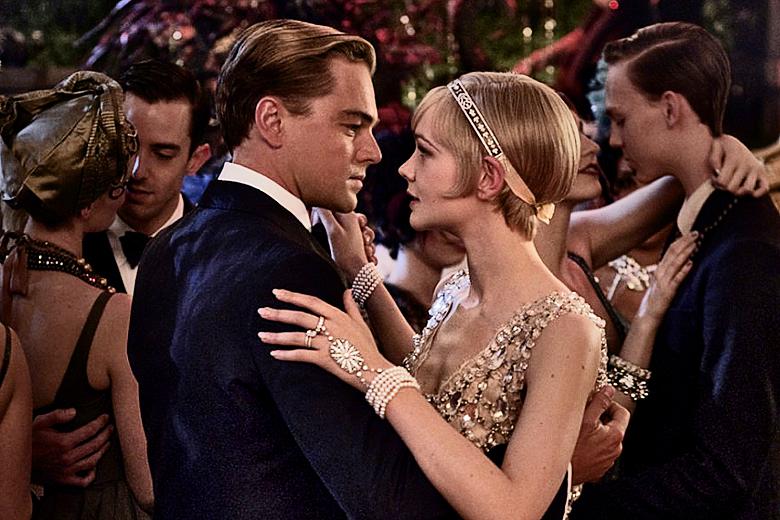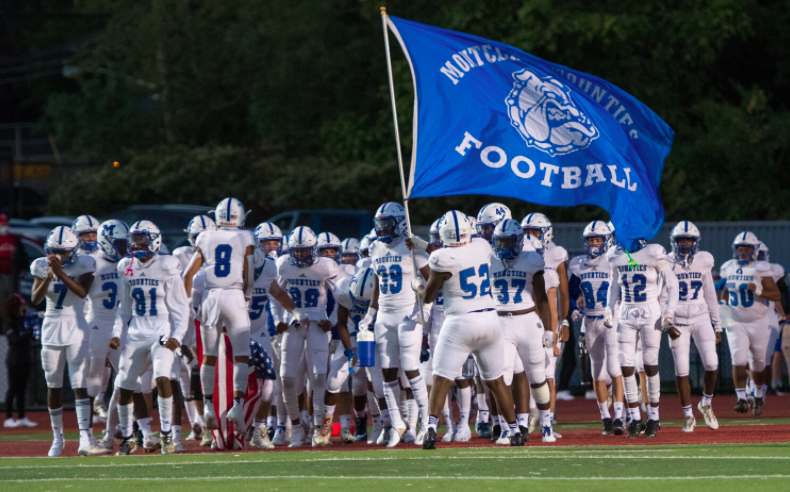Although a century has passed since F. Scott Fitzgerald’s masterpiece The Great Gatsby was published, its themes remain strikingly relevant despite the many changes the world has undergone. In this novel, Jay Gatsby is the mysterious main character who is drawn to the elusiveness of Daisy, the woman who he is madly in love with. Five years before, Gatsby fell in love with Daisy. He then left to fight in the war, and when he came back, Daisy was married. But Gatsby never lost his love for her. Daisy has the power to stop Gatsby from feeling everything except his feelings for her; her love fogs his ability to make decisions.
Gatsby and Daisy’s tortured love affair begins again with one important scene, where Gatsby is preparing to meet Daisy for the first time in five years. As he runs around Nick’s (the narrator) house and sets it up, his character is transformed from someone grand and alluring to a childish man yearning for a love he once had.
Nick narrates, “[Gatsby] followed me wildly into the kitchen, closed the door and whispered: ‘Oh, God!’ in a miserable way… ‘This is a terrible mistake,’ he said, shaking his head from side to side, ‘a terrible, terrible mistake’” (Fitzgerald, 87).
As Gatsby observes the woman Daisy has become after their five years apart, he realizes that he may no longer be what she needs. He has to compete with the life she is already living and the husband she already has. Gatsby, in turn, tries to change her perception of life–changing himself in the process. But Nick and readers alike see Daisy as an empty-headed, shallow woman. There is an air about her that Nick cannot put into words, until one conversation he has with Gatsby.
“‘She’s got an indiscreet voice,’ I remarked. ‘It’s full of—’ I hesitated. ‘Her voice is full of money,’ [Gatsby] said suddenly” (Fitzgerald, 120).
This statement is one of the most important moments in this novel, though it raises a question: Why is Gatsby drawn to that? It is neither a negative nor a positive observation, just something that describes who Daisy is at heart. After all, a person’s voice can reflect the feelings they hold within their heart.
Gatsby is drawn to Daisy because he sees something in her that he wants to be. Daisy is someone who has had everything handed to her, while Gatsby has spent his life working to reach the top. While Daisy breezes through her world, Gatsby climbs through it. He has to convince himself that Daisy never loved Tom, that all along she was just waiting for Gatsby to come back from the war. Daisy captures Gatsby because she is a constant reminder of his past. Gatsby came from nothing, and as Daisy is a fragment of his past, he feels that by winning her love, his past will be made up for.
Nick says, “…there was a change in Gatsby that was simply confounding. He literally glowed; without a word or a gesture of exultation a new well-being radiated from him and filled the little room (Fitzgerald, 89).”
At the end of the novel, this “glow” in Gatsby becomes his inability to feel, one that eventually leads him to do a bad thing. One night, after a drunken scene with Tom, Daisy’s unfaithful husband, Gatsby and Daisy begin to drive home in Tom’s yellow car. Suddenly, Myrtle, a gas station owner’s wife, whom Tom has been having a tormented affair with, charges towards the car. Daisy cannot stop the car and Myrtle is killed. But Daisy does not even bother to stop the car and check on the woman, though Tom falsely believes that it is Gatsby who was driving and later calls Gatsby a coward for not stopping. After this scene, it does seem that Gatsby feels little remorse. He asks Nick:
“‘Was she killed?’
‘Yes.’
‘I thought so; I told Daisy I thought so. It’s better that the shock should all come at once. She stood it pretty well (Fitzgerald, 143).’”
After this traumatic event, all Gatsby cares about is Daisy. She is the only person that matters to him at that moment. This is proof that he is now a version of Daisy, someone who sees no consequences. After spending five years apart, he is overcome with a determination to never lose her again.
All of this goes to show how important the theme of The Great Gatsby will always be: the longing for something impossible. If Gatsby was not such an insecure man, he would be able to see Daisy for the empty woman she really is. Even one hundred years after this novel was written, a person’s longing, whether related to their tortured past or unknown future, still has the power to go against all human nature.














